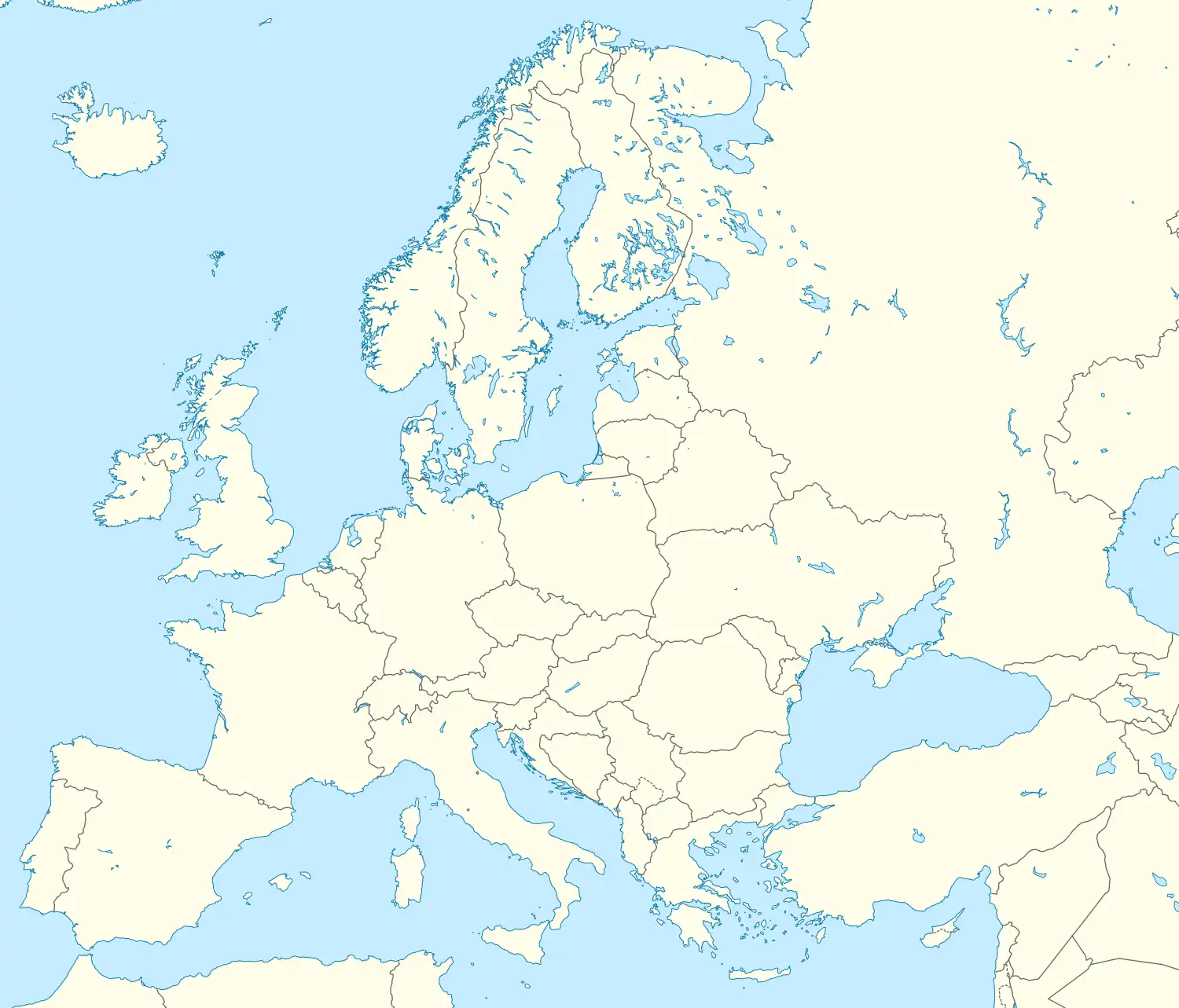Gylon
Gylon (Ancient Greek: Γύλων), also known as Gylon of Cerameis,[1] was a Greek military official and the maternal grandfather of Demosthenes.[2] He is known for his role in the capture and ultimately turning over of Nymphaeum to the Bosporans, for which he was punished.
Nymphaeum fell under Athenian rule when Gylon captured the city and established a garrison there,[3] along the strategically important grain route.[4] Until that time, the city was influenced by the Scythians.[3] He was said to have lived in Ancient Crimea (Bosporan Kingdom).[5] Gylon is said to have betrayed Nymphaeum to "the enemy"[1] when in 405 BC, he handed it to the Bosporan King Satyros[2][6] in exchange for needed grain. One theory is that it was no longer feasible for the Athenians to maintain the outpost.[7] but Glyon was punished for his role in letting go of Nyphaeum. He was first sentenced to death, but the punishment was later changed to a fine that Demosthenes paid off.[4]
Gylon married a woman of nobility from Scythia.[3] They had a daughter, Cleobule (Ancient Greek: Κλεοβούλη), who married Demosthenes Senior and they had a son Demosthenes.[4]
References
- Aeschines. Against Ctesiphon.
There was a certain Gylon of Cerameis. This man betrayed Nymphaeum in the Pontus to the enemy, for the place at that time belonged to our city.
- Alfonso Moreno (25 October 2007). Feeding the Democracy: The Athenian Grain Supply in the Fifth and Fourth Centuries BC. OUP Oxford. p. 337. ISBN 978-0-19-922840-9.
- Alfonso Moreno (25 October 2007). Feeding the Democracy: The Athenian Grain Supply in the Fifth and Fourth Centuries BC. OUP Oxford. pp. 166–167. ISBN 978-0-19-922840-9.
- Ian Worthington (1 October 2015). Demosthenes of Athens and the Fall of Classical Greece. Oxford University Press. pp. 11–12. ISBN 978-0-19-026356-0.
- Demosthenes. Funeral Speech.
Gylon, grandfather of Demosthenes, had lived in the Crimea.
- Gardiner-Garden, John R. Fourth Century Conceptions of Maiotian Ethnography. p. 192. JSTOR 4435962.
and it is possible that it was at this time that the Athenians settled Nymphaion, which their admiral Gylon, gave to the Bosporans in 405, just before the collapse of the Athenian sea power.
- Alfonso Moreno (25 October 2007). Feeding the Democracy: The Athenian Grain Supply in the Fifth and Fourth Centuries BC. OUP Oxford. pp. 174–175. ISBN 978-0-19-922840-9.
